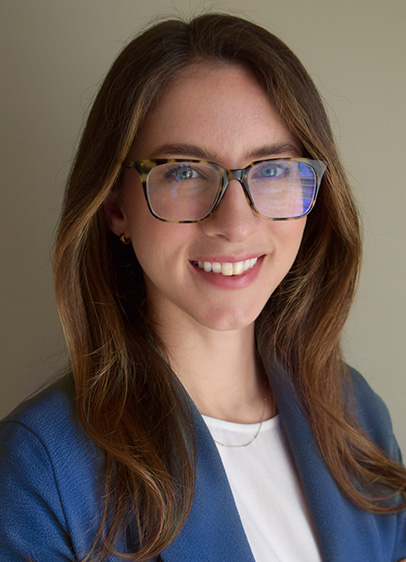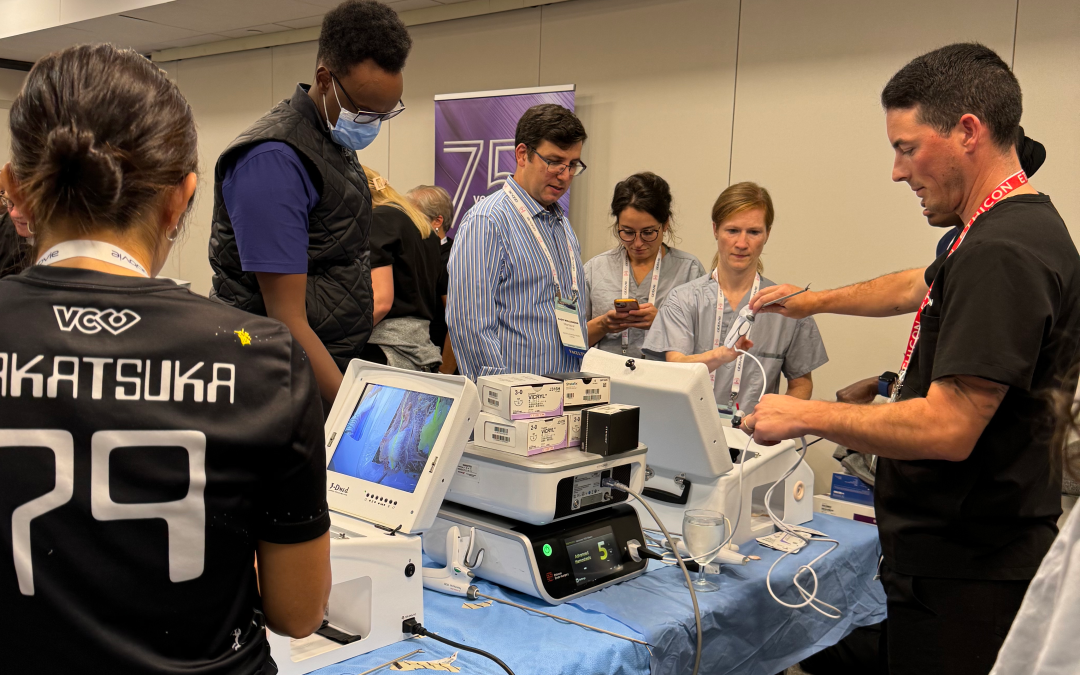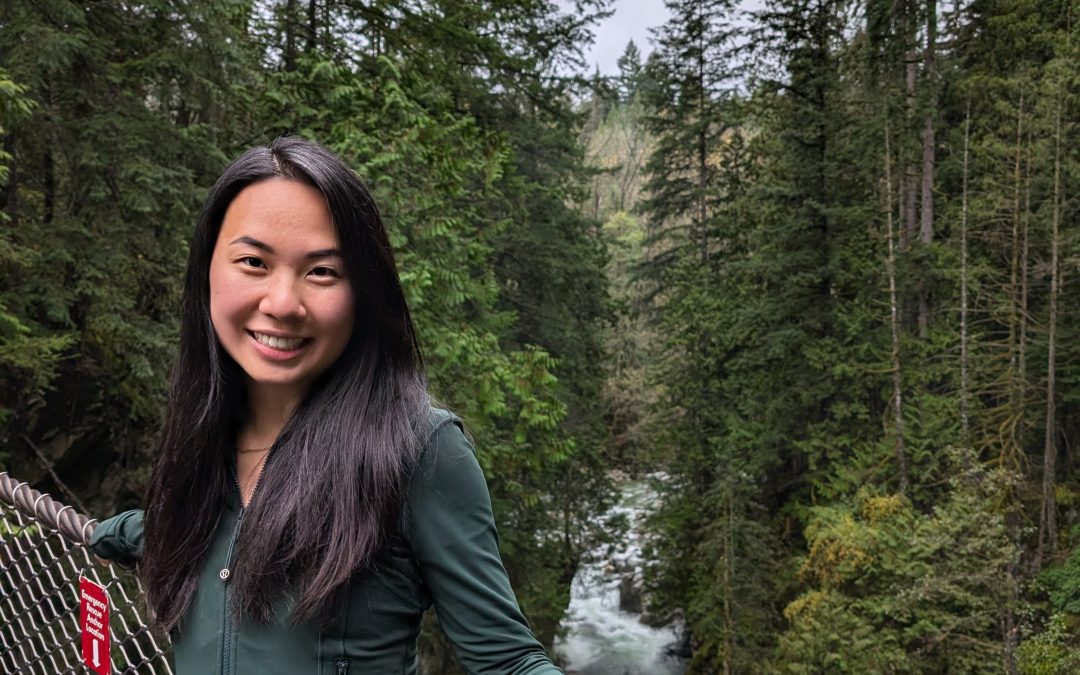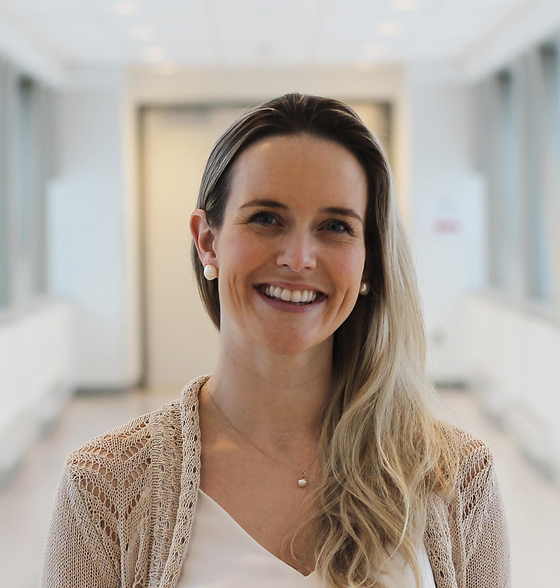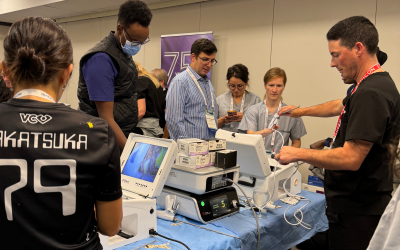Fellow: Dr. Lauren Andrew
Fellowship program: University of Calgary Fellowship in Minimally Invasive and Complex Gynecologic Surgery
Where are you from, and where did you complete your medical training?
I’m from New Brunswick, and I went to medical school at Dalhousie. I did residency here at the University of Calgary.
What made you decide to pursue this fellowship?
I knew I wanted to do a two-year academic fellowship, I wanted to do a master’s with my fellowship, and I wanted something that would give me a big breadth of experience. I wanted to go somewhere where I could get a lot of diversity in my training. One of the pros of our fellowship is there are eight different staff you work with, so you get a huge variety of experiences. And I had a really good experience in residency, so I wanted to keep working with these people.
What makes your fellowship program unique?
In our fellowship, there are two streams, which is one of the unique things. One of the streams is a two-year academic fellowship — which is what I’m in — and there’s a one-year clinical fellowship, which is for people who are either early in practice or who have a job in the community and want to get specific training to bring back to that community. I think that’s a great resource for Canada. I’m in the academic program because my goal is to be an academic minimally invasive surgeon.
Another difference in our program is that we work at four different hospitals, so we get to work with many different people. That’s a huge benefit of the program, because you get exposure to so many different ways of doing things.
And then there’s also the fact that we get to be in Calgary. Everyone loves having access to the skiing, the mountains, hiking, and camping, which is different from a lot of other places. I have enough free time to go explore the mountains on the weekends — I don’t know if that would be true for every fellowship.
What have been some of the highlights of your training?
Progressive independence, mentorship, and being able to see your progress in your surgical skill and teaching as you go through. I’m in the end of my fellowship now and I can really see the skill development, especially in my teaching. And then there’s been really great mentorship here in Calgary.
I would also add that I’m doing a master’s of public health at Harvard and I go down there for the summers, and the program has been really supportive of me taking time off to do that. That support has been a highlight as well.
Finally, at last year’s CanSAGE conference, we won top video and top presentation for one of my videos I made with Dr. Liane Belland, who is our Program Director. The video explored ways patients with complex anatomy conditions like scoliosis could have access to laparoscopy, which was cool from an advocacy standpoint.
How would you describe your fellowship’s focus from a surgical standpoint?
Our focus from a surgical standpoint is on advanced stage endometriosis, multi-fibroid uteruses, advanced hysteroscopy, and the different thing about our program compared to other ones from a surgical standpoint is that we have a high volume of cases involving surgical treatment of tubo-ovarian abscess.
What is your area of research interest?
My research previously in residency was in thrombosis in pregnancy. Now I have an interest in thrombosis as it relates to gynie surgery, specifically how to prevent thrombosis, mostly because our patients are young, healthy women — we don’t think of them as getting blood clots, and when we do see them, it can be quite devastating and have a huge impact on their quality of life.
So my research looks at who’s at risk of thrombosis and looking at the ways we can prevent that.
What would you say to someone who was considering a MIGS fellowship?
I would say I think that MIGS is an amazing area of gynaecology to train in, especially through the CanSAGE fellowships. MIGS really allows you to provide care for a wide variety of patients, develop whatever niche in terms of surgical skill that you’re interested in, and really elevate gynaecologic care in Canada overall.

